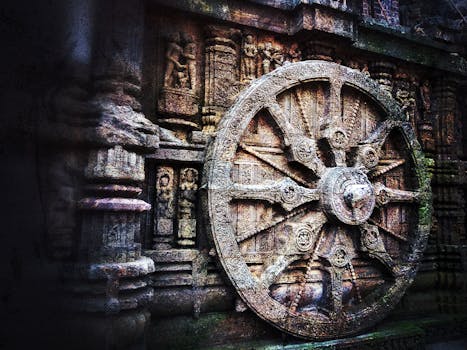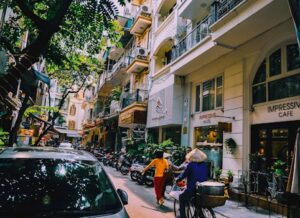
India, with its rich cultural heritage, diverse landscapes, and vibrant cities, is a popular destination for travelers from around the world. However, like any major tourist destination, it has its share of scams that can catch unsuspecting visitors off guard. Being aware of these scams and knowing how to avoid them can help ensure a safe and enjoyable trip. Here’s a comprehensive guide on the most common scams in India and how to avoid them.
1. Taxi and Auto-Rickshaw Scams
Description: One of the most common scams involves taxi and auto-rickshaw drivers overcharging tourists. Drivers may refuse to use the meter, take longer routes, or claim that the meter is broken. In some cases, they might take you to a different hotel or shop where they receive a commission.
How to Avoid: Always insist on using the meter. If the driver refuses, find another taxi or auto-rickshaw. Use ride-hailing apps like Uber or Ola, which provide fare estimates and track your route. If you’re taking a pre-paid taxi from the airport, keep the receipt until you reach your destination.
2. Fake Tour Guides
Description: Unofficial tour guides might approach you at popular tourist sites and offer their services. They often provide incorrect information and charge exorbitant fees. Some may even take you to shops where they receive a commission.
How to Avoid: Use licensed tour guides from reputable agencies. Verify their credentials before hiring them. Look for guides with official badges and check reviews online.
3. Pickpocketing
Description: Pickpocketing is common in crowded areas such as markets, train stations, and tourist attractions. Thieves often work in groups and use distractions to steal wallets, phones, and other valuables.
How to Avoid: Keep your belongings secure by using a money belt or a cross-body bag with zippers. Be especially vigilant in crowded places and avoid carrying large amounts of cash. Always be aware of your surroundings and trust your instincts if something feels off.
4. Fake Police Officers
Description: Scammers posing as police officers might approach you, ask to see your identification or wallet, and then steal your money or credit cards. They might claim they need to check for counterfeit money or drugs.
How to Avoid: Always ask for identification and insist on going to the nearest police station to resolve any issues. Real police officers will not demand immediate payment or ask to see your wallet.
5. Overcharging in Restaurants
Description: Some restaurants, especially those near tourist attractions, might overcharge tourists by adding hidden fees or charging for items you didn’t order. This can include inflated prices for bread, water, or service charges.
How to Avoid: Always check the menu for prices and ask for a detailed bill. Avoid restaurants with no prices listed on the menu or those that seem overly eager to get you inside. Reading reviews online before choosing a restaurant can also help.
6. Fake Tickets
Description: Scammers might sell fake tickets for attractions, transportation, or events. These tickets are often overpriced and not valid.
How to Avoid: Purchase tickets only from official sources, such as the attraction’s website or authorized ticket vendors. Avoid buying tickets from street vendors or unofficial websites.
7. Friendship Bracelets
Description: Scammers might approach you with a “free” friendship bracelet, tie it around your wrist, and then demand payment. They often use high-pressure tactics to make you pay.
How to Avoid: Politely decline any unsolicited offers and walk away. If someone tries to tie a bracelet on you, firmly say no and remove yourself from the situation.
8. Fake Charity Collectors
Description: Scammers posing as charity workers might ask for donations for fake causes. They often use emotional appeals to get you to give money.
How to Avoid: Verify the legitimacy of the charity before donating. Only donate to well-known organizations and avoid giving money to individuals on the street.
9. ATM Skimming
Description: Scammers might install skimming devices on ATMs to steal your card information. They might also offer to help you with the ATM and then steal your card or money.
How to Avoid: Use ATMs located inside banks or well-lit areas. Cover the keypad when entering your PIN and be cautious of anyone offering unsolicited help. Regularly monitor your bank statements for any unauthorized transactions.
10. Fake Hotel Booking Websites
Description: Scammers create fake hotel booking websites that look legitimate. They take your payment information and then disappear, leaving you without a reservation.
How to Avoid: Book hotels through reputable websites and read reviews. Verify the website’s legitimacy by checking for secure payment methods and contact information.
11. Street Performers and Artists
Description: Some street performers and artists might demand payment after you take a photo or watch their performance. They might use aggressive tactics to get you to pay.
How to Avoid: Always ask if there is a fee before taking a photo or watching a performance. If you’re not interested in paying, politely decline and walk away.
12. Fake Products
Description: Vendors might sell counterfeit goods, such as designer bags, watches, or electronics. These products are often of poor quality and not worth the price.
How to Avoid: Purchase goods only from reputable stores. Be wary of deals that seem too good to be true. If you’re looking for authentic products, buy from official retailers.
13. The “Paper Move” Scam
Description: Scammers might approach you with a piece of paper, asking for directions or help. While you’re distracted, an accomplice steals your belongings.
How to Avoid: Be cautious of anyone approaching you with a piece of paper or asking for help. Keep your belongings secure and be aware of your surroundings.
14. The “Spilled Drink” Scam
Description: Scammers might spill a drink or food on you and then offer to help clean it up. While you’re distracted, they steal your belongings.
How to Avoid: If someone spills something on you, be cautious and secure your belongings immediately. Politely decline any offers of help and move away from the area.
15. The “Fake Petition” Scam
Description: Scammers might ask you to sign a petition for a fake cause. While you’re signing, an accomplice steals your belongings.
How to Avoid: Avoid signing any petitions from strangers. Politely decline and walk away. Keep your belongings secure and be aware of your surroundings.
While scams can be a concern, they shouldn’t deter you from visiting India. By staying informed and vigilant, you can avoid falling victim to these common scams and enjoy all that this beautiful country has to offer. Always trust your instincts and seek help from local authorities if you find yourself in a difficult situation.
India is a land of history, culture, and beauty, and with the right precautions, your trip can be filled with wonderful memories and experiences. Safe travels!
You May Also Like …
Navigating Italy: Top Scams to Watch Out For and How to Avoid Them
Italy, with its rich history, stunning architecture, and delicious cuisine, is a top destination for…
Navigating Greece: Top Scams to Watch Out For and How to Avoid Them
Greece, with its stunning landscapes, rich history, and vibrant culture, is a popular destination for…
Navigating Turkey: Top Scams to Watch Out For and How to Avoid Them
Turkey, with its rich history, stunning landscapes, and vibrant culture, is a popular destination for…
Navigating Vietnam: Top Scams to Watch Out For and How to Avoid Them
Vietnam, with its breathtaking landscapes, rich history, and vibrant culture, is a must-visit destination for…
Morning Magic: Rituals to Energize and Focus Your Day
In the hustle and bustle of modern life, mornings can often feel like a race…
Will Dogecoin Ever Reach $1? Exploring the Possibilities
Dogecoin, the meme-inspired cryptocurrency, has captured the imagination of investors and enthusiasts alike since its…
Effective Hangover Relief: Strategies to Ease the Morning-After Misery
Waking up with a hangover can be a dreadful experience. The pounding headache, nausea, fatigue,…
Serene Mornings: How to Design a Peaceful and Mindful Routine
In today’s fast-paced world, mornings can often feel rushed and stressful. However, starting your day…
Unlocking Online Income: Proven Ways to Make Money from Home
The digital age has opened up a myriad of opportunities for making money online. Whether…
Congressman Clay Higgins Faces Backlash Over Racist Post
Recently, Congressman Clay Higgins, a Republican from Louisiana, found himself embroiled in controversy after posting…

